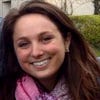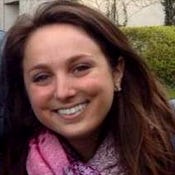PayPal Founder's Fellowship Hatches Medication Reminder AppPayPal Founder's Fellowship Hatches Medication Reminder App
PayPal founder Peter Thiel created a fellowship to get young people tackling big ideas. One result: a medication reminder app worth sticking with, designed by a 19-year-old.


10 Mobile Health Apps From Uncle Sam
10 Mobile Health Apps From Uncle Sam(click image for larger view and for slideshow)
The market for healthcare apps is exploding, but many health and wellness apps have a high drop-off rate, meaning patients lose interest and stop using the program once the novelty wears off.
Delian Asparouhov, 19, thought about that drop-off rate as he designed a new medication reminder app called Nightingale.
"The app is designed to give patients a high data-received-to-amount-of-time-spent-on-app ratio," Asparouhov said. "The user should have to spend little time in the app. All data collection should occur in the background."
As a 2013 Thiel fellow, Asparouhov is part of a well-funded and highly publicized social experiment, backed by PayPal founder Peter Thiel. The Fellowship provides a $100,000 grant for someone to leave school for two years to try to solve some big problem, and perhaps start a company. Asparouhov left MIT to focus on healthcare IT research and development. He co-created the app with Eric Bakan, an MIT student.
[ Are third-world diseases being left out of health apps? Read Mobile Health Apps Neglect Poor Countries. ]
Nightingale uses the phone's Wi-Fi signal, GPS data and accelerometer to learn patients' schedules and when they take their medication. It's recommended that patients keep their phone by their bedside and check their phone when they wake up. For example, if the phone's accelerometer detects a patient stopped using their phone and started using it eight hours later, the app will learn the patient's sleep habits. That, in addition to patients entering when they take their medication, results in a customized medication reminder.
The app runs in the background, so can detect activity even when it isn't open.
Asparouhov has a big challenge getting his app to stand out among the dozens of medication reminder apps that already exist in the Apple App store. One distinction is that he hopes the app can help make people want to take their medicine. The app eventually will ask patients how they feel and how their activity level is affected based on whether they take their medication. "It's hard to build something that has to do with behavioral change," Asparouhov said. "You have to figure out how to motivate patients to use the app."
Some of that motivation will hopefully come from the ease of using the app and the minimal amount of time it takes to enter personal data, Asparouhov said. Most of the functions of the app can be achieved in under two taps.
The app can incorporate caregivers and physicians by alerting them if patients haven't been taking their medication. Nightingale is free for patients, and Asparouhov hopes physicians will pay based on the number of patients they are managing through the app, which is both iOS and Android compatible.
Nightingale uses patient-generated data, an increasing healthcare trend, to improve quality of care. "With patient-generated data, medical problems can be addressed earlier and faster," Asparouhov said.
Arjun Balaji, 18, has tried multiple methods to remember to take his daily medication: phone alarms, calendar reminders, sticky notes and more. Balaji is a friend of Asparouhov's who agreed to try out the app. Before using Nightingale, he took his medication about 80% of the time. Nightingale is the first program that's worked for him, he said. Balaji has been using the app consistently for five months.
"The app is very ingrained in my system now," Balaji said. Asparouhov's peers in the Thiel Fellow program don't lack for ambition. They've set out to try to develop technology to transform everything from education to architecture to geology. Many of the projects focus on delivering advanced technology to the average person to increase technological opportunities and lessen the inequality gap. Asparouhov became interested in health IT after acting as a caregiver during high school for his grandmother who was battling breast cancer, and he was frustrated with the healthcare technology options available.
Asparouhov sees the Nightingale apps as just a first step in health IT development. He eventually wants to tackle a much grander problem -- improving electronic health records. "EHRs are completely broken," Asparouhov said. "None of the EHRs are designed with the physician workflow in mind. They've been made by engineers working in the dark. There isn't a great solution out there."
About the Author
You May Also Like






